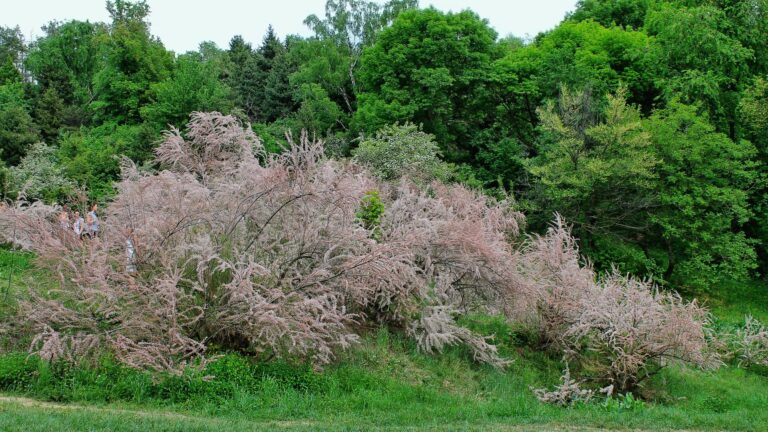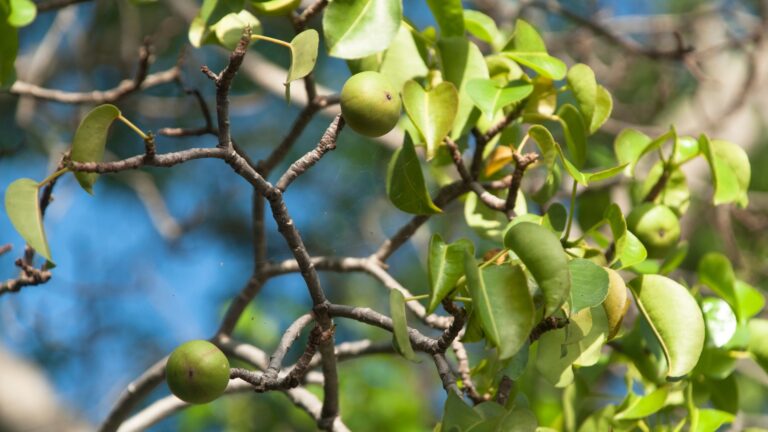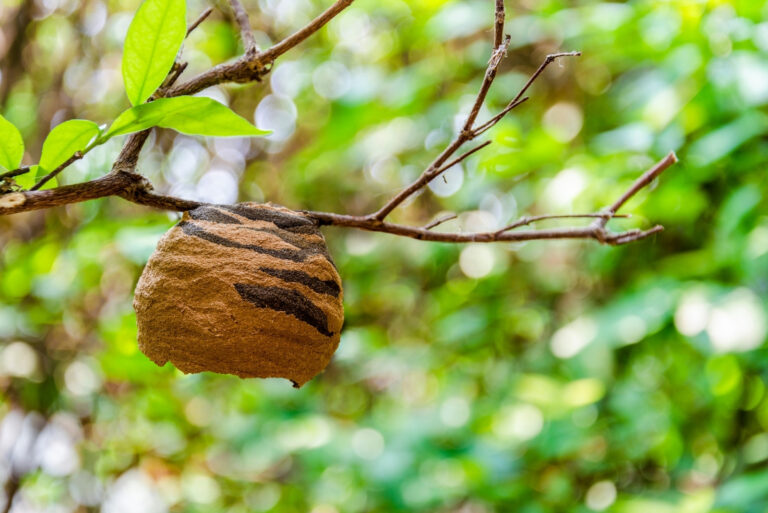Discover 10 Ways Onion Skins Enhance Your Garden And Boost Health
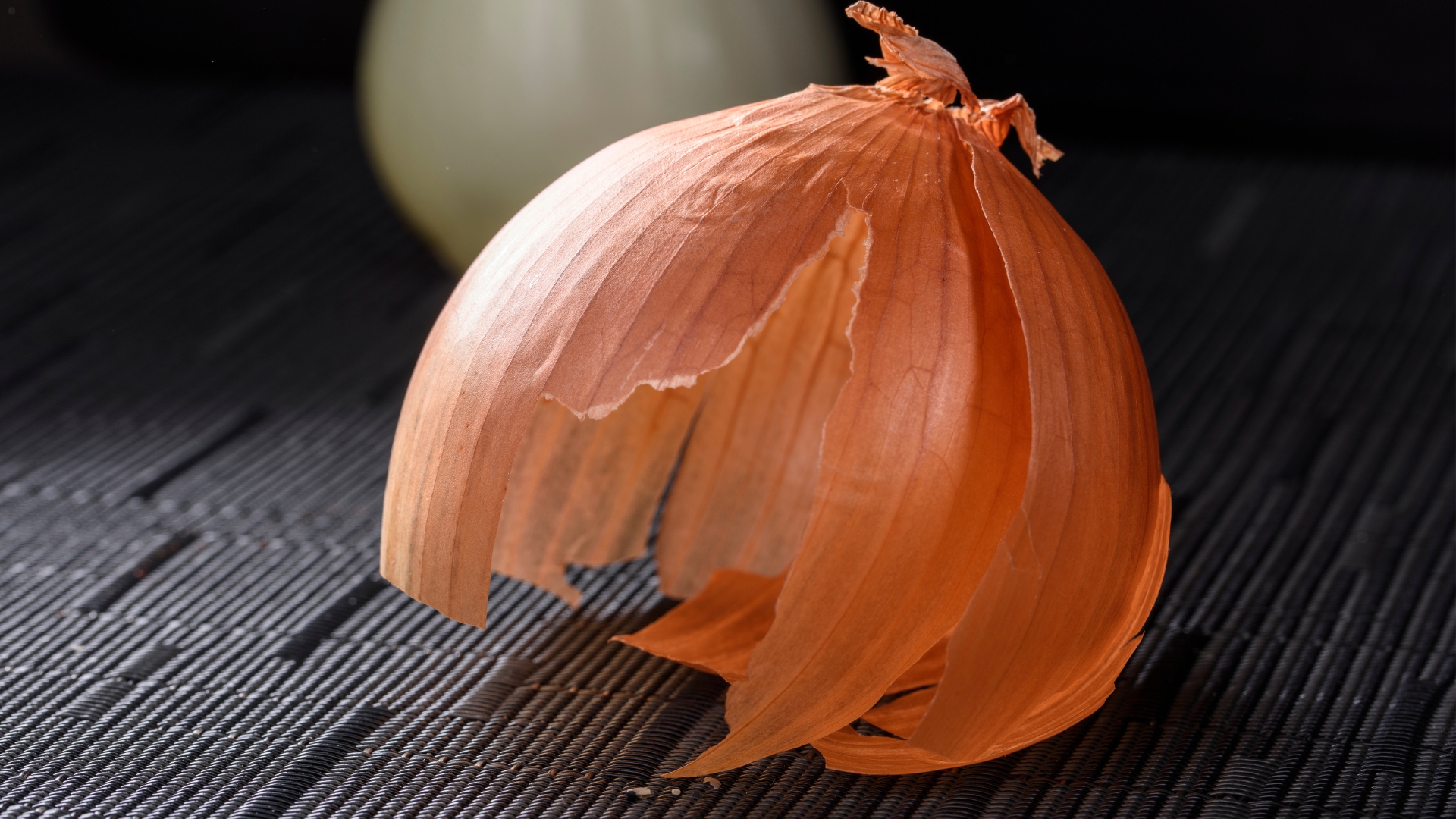
Did you know that there are multiple ways to use onion skin instead of just tossing it away?
That’s right, onion skin has numerous benefits – it can be used in the garden to repel pests and enrich the soil with essential nutrients, and also to improve our immune system and overall well-being.
In this article, we are going to cover onion skin uses. From coloring stuff to crafty projects and health perks, there’s more to onion skins than meets the eye!
For Garden Uses
Don’t let your kitchen waste go to waste, but consider using it to improve your garden. Just like you would use eggshells to boost plant growth and improve nutrient availability, onion skins are used in a similar manner.
1. Natural Mulch
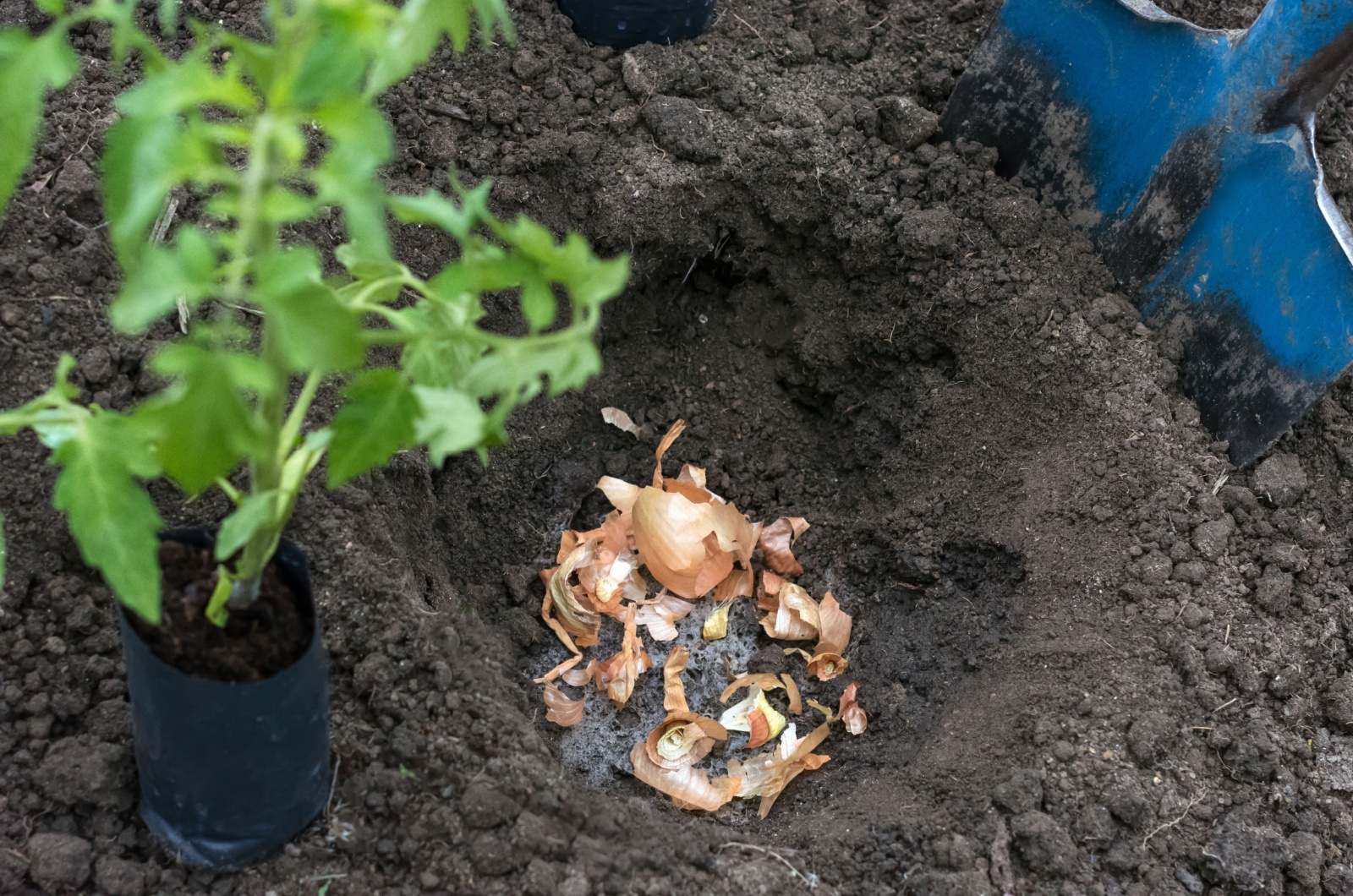
Besides dry leaves, wood chips, grass clippings, and other popular materials used for mulch, you can also try and use dry onion skins. They make an excellent mulch that helps suppress weeds, reduce evaporation, and also regulate the temperature of the soil.
You can simply spread onion skins around the garden bed – these will make an effective mulch.
Related: What Is Leaf Mulch And How You Can Make It?
2. Compost Rich In Nutrients
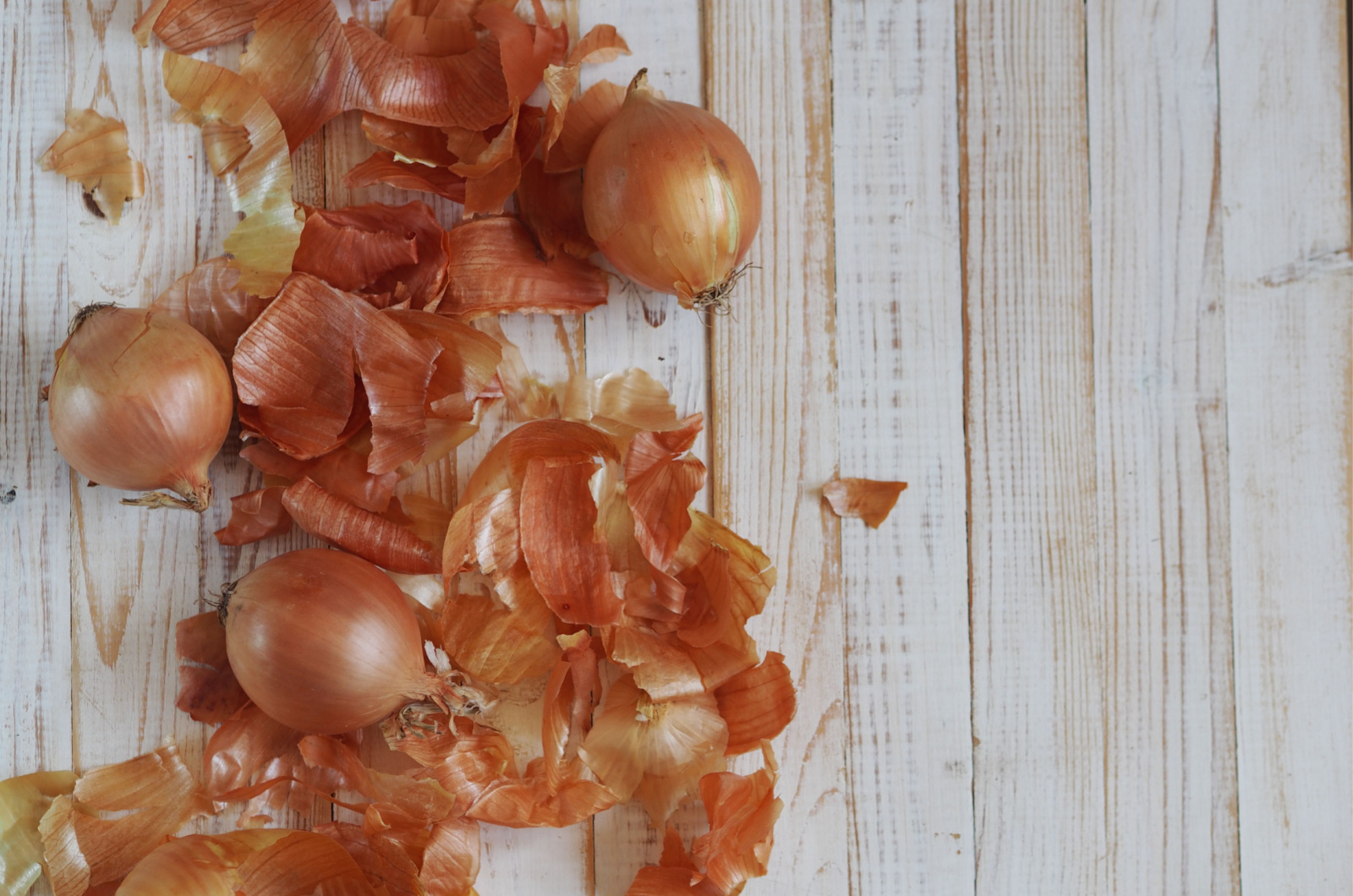
Adding onion skins to your compost pile is a great way to improve nutrient availability. This is because onion skins have high carbon content that balances the nitrogen-rich components of the compost pile, which leads to a nutrient-dense compost that plants absolutely love!
This might be useful: 95 Things You Didn’t Know You Can Compost
3. To Repel Pests
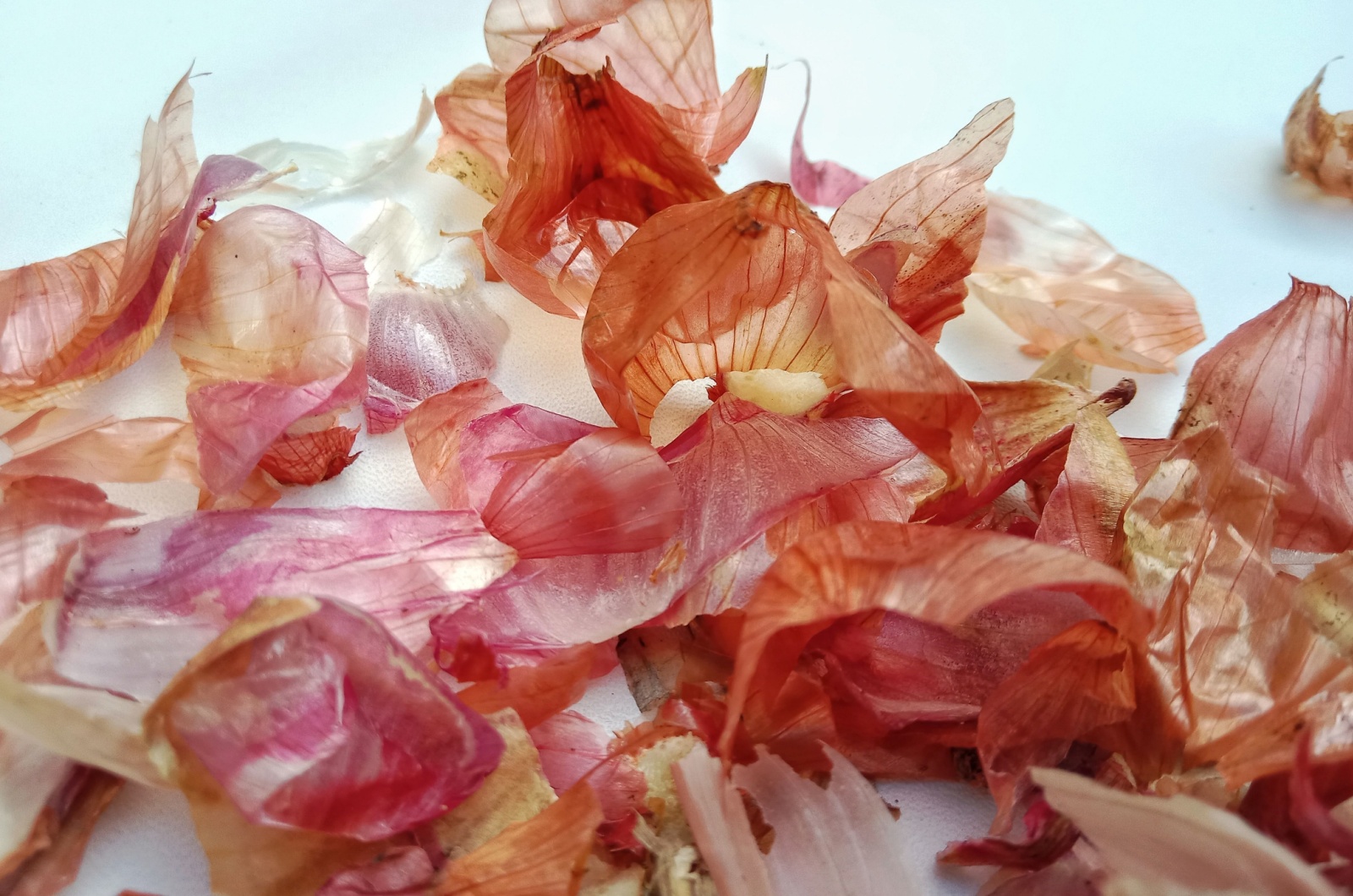
Instead of using pesticides that could harm your plants, consider using onion skins to repel pests. Simply place a layer of skins around the base of your plants and the smell will help deter aphids, slugs, and other pests.
4. Get Creative
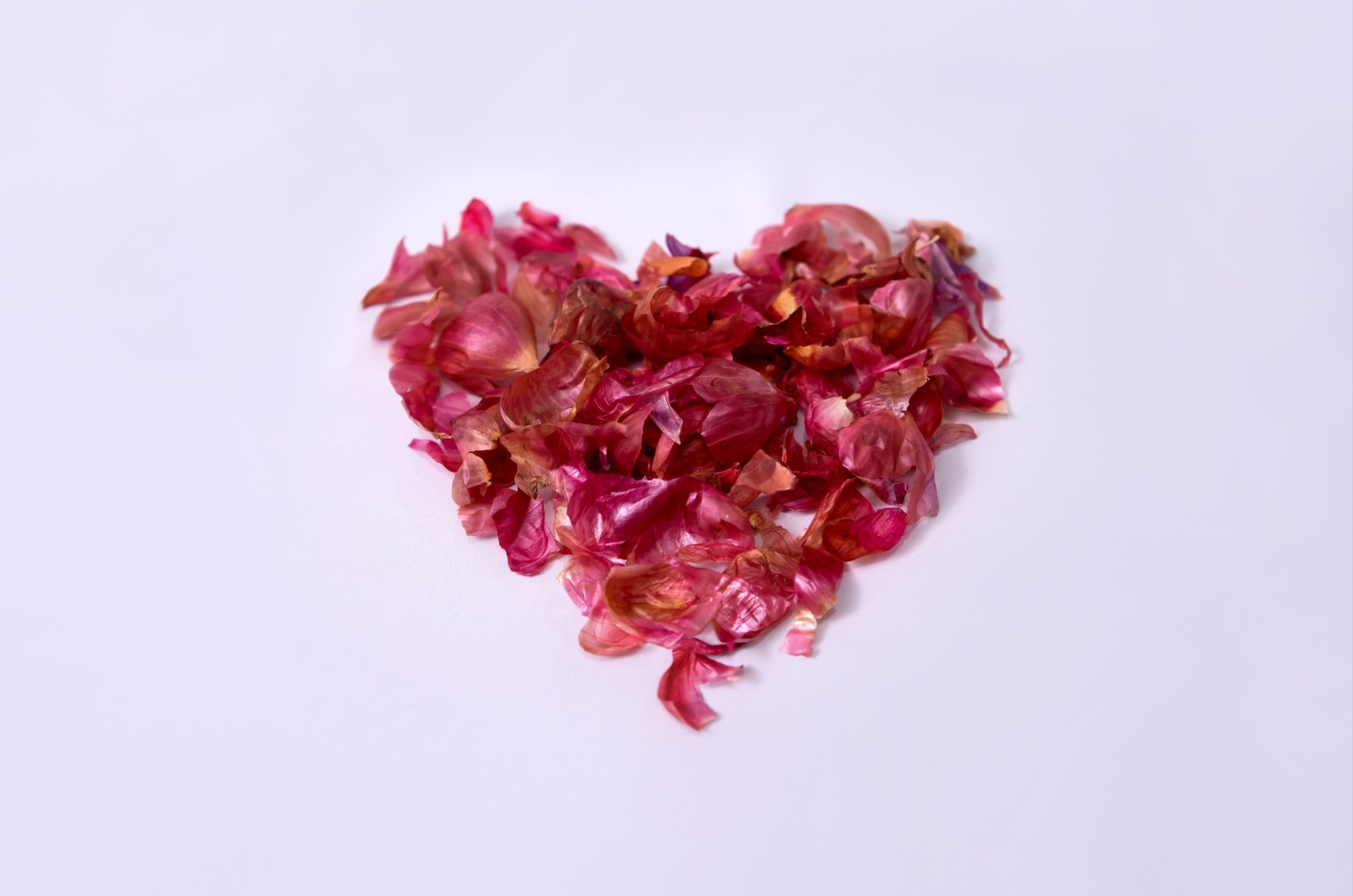
You can also get in touch with your creative side and make beautiful garden art with onion skins. Using onion skin is a sustainable way to make natural dyes for pots or coloring in the garden.
5. Soil Enrichment
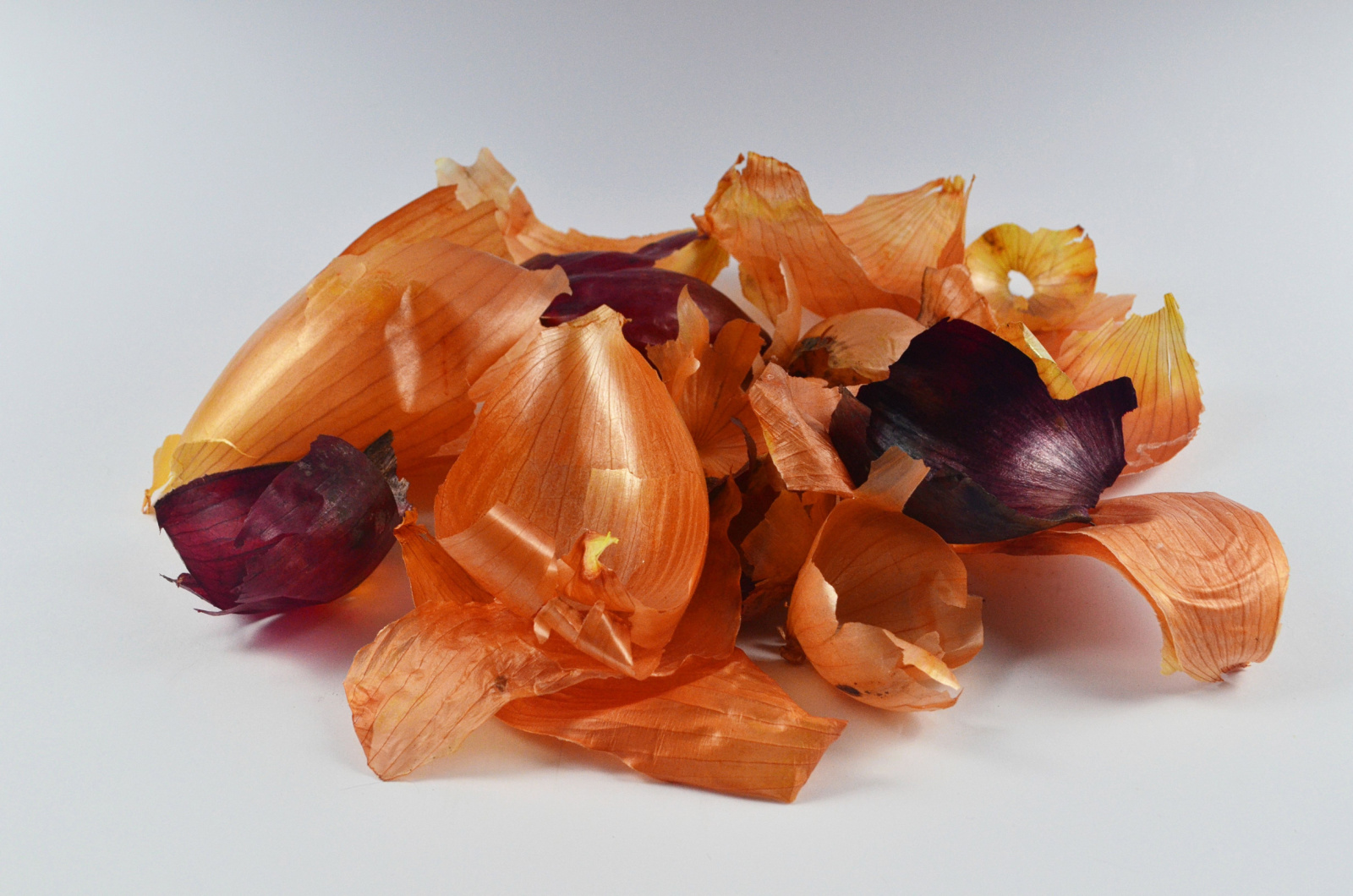
Onion skins decompose slowly, which is why they should be used as a soil enrichment. When buried in the soil, they will improve soil structure, provide a favorable environment for microorganisms, and help with moisture retention.
For Health & Other Benefits
In addition to these helpful garden uses, onion skins can also be used as a source of antioxidants that improve our health and boost our immunity.
Besides onions making our food more delicious, did you know that the skins can be used for culinary purposes, too?
Keep reading to find out more about onion skin uses in health, cooking, cleaning, and more!
1. Natural Dye For Fabric
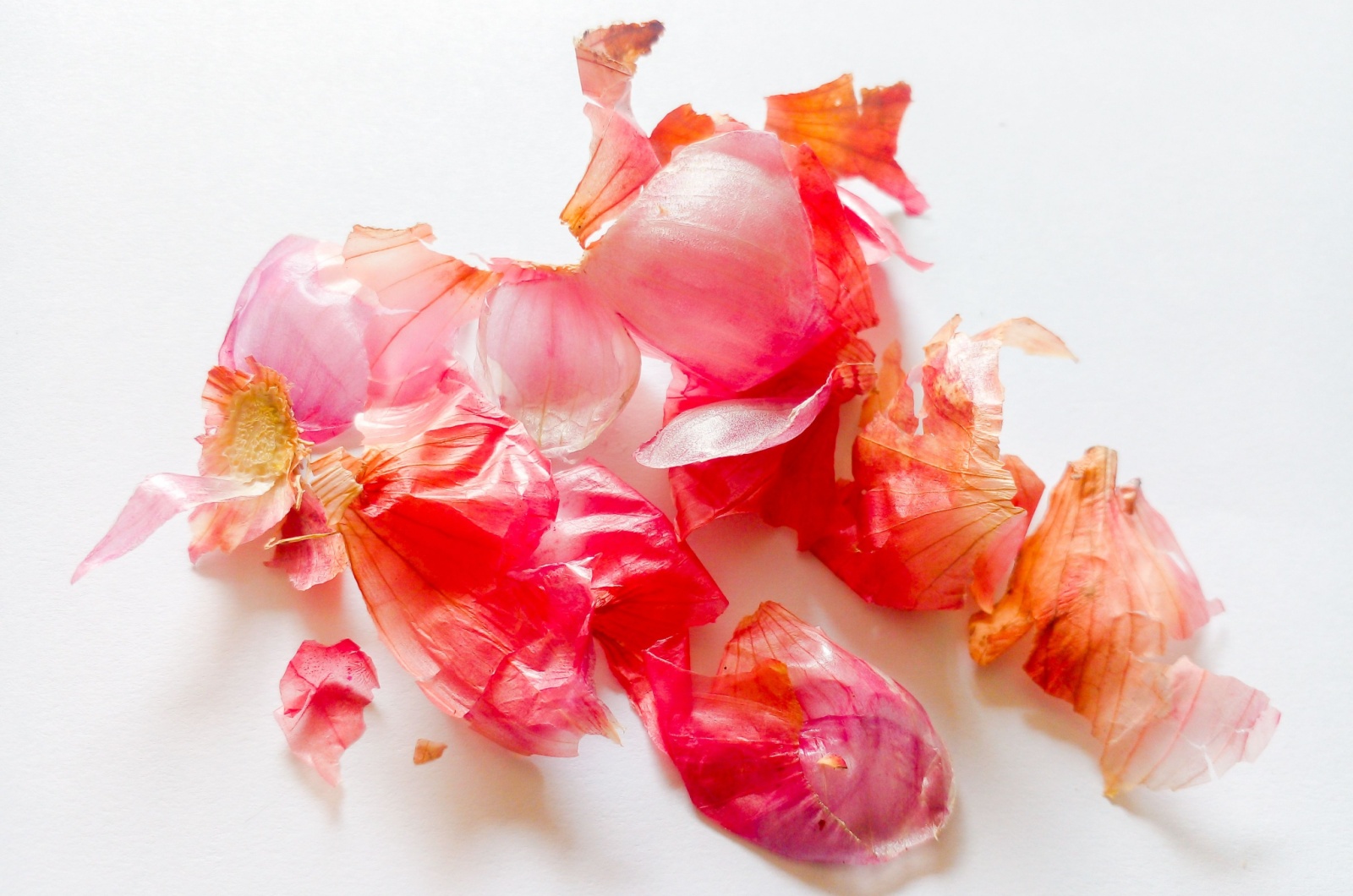
If you want to add warm, rich tones to your fabrics, opt for onion skins instead of synthetic dyes. You can achieve different tones by adjusting the quantity of onion skins that you use when making dyes.
Here’s a video on how to make natural dye for fabric using onion skins: https://youtu.be/CnL3NlJq_kg?si=JOwrvvBRa-I5fRDp
2. Source Of Antioxidants
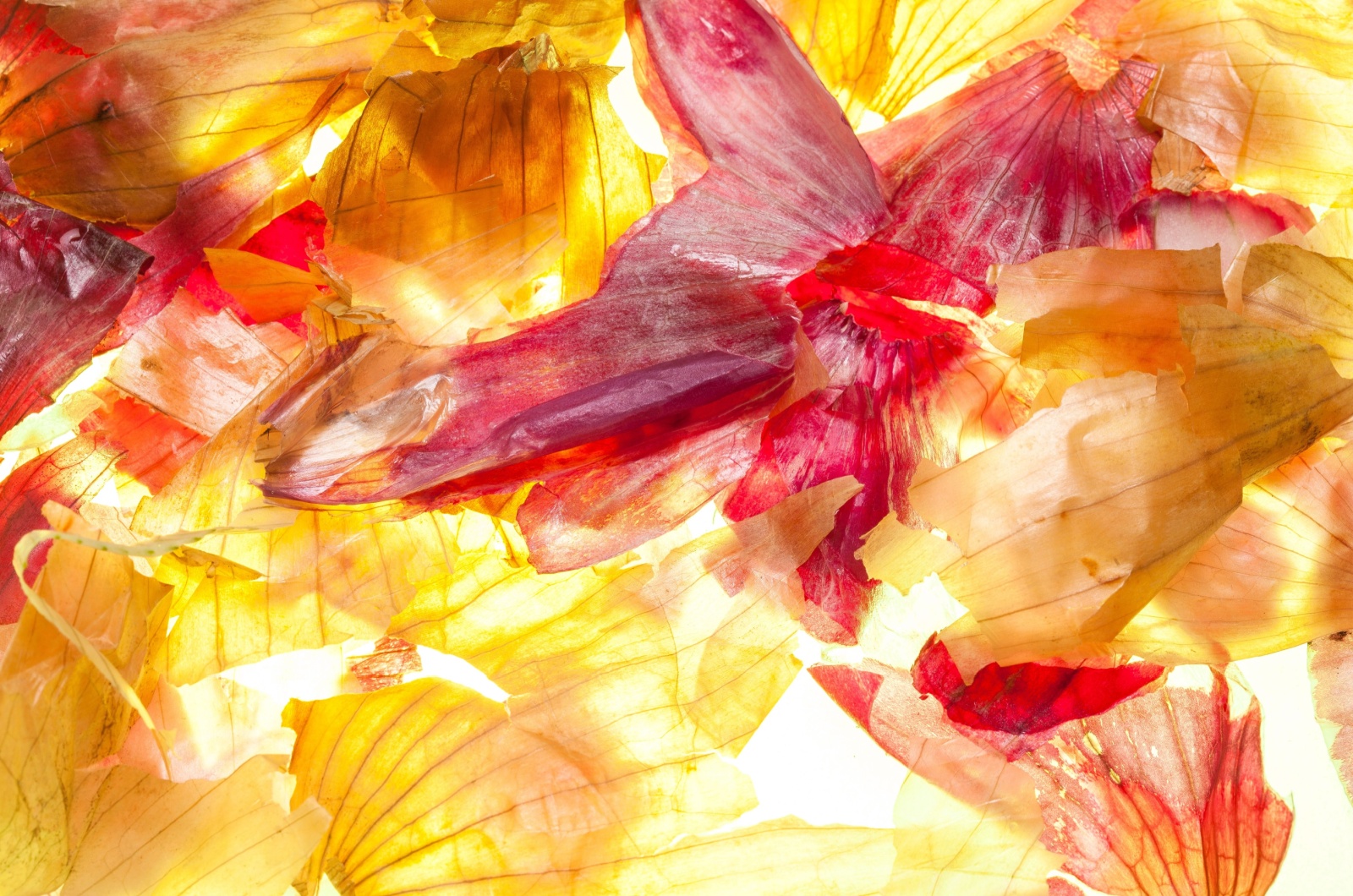
Onion skins contain quercetin, which is a natural antioxidant that helps lower oxidative stress in our bodies [1]. This can eventually prevent chronic diseases and improve overall well-being.
3. For Culinary Purposes
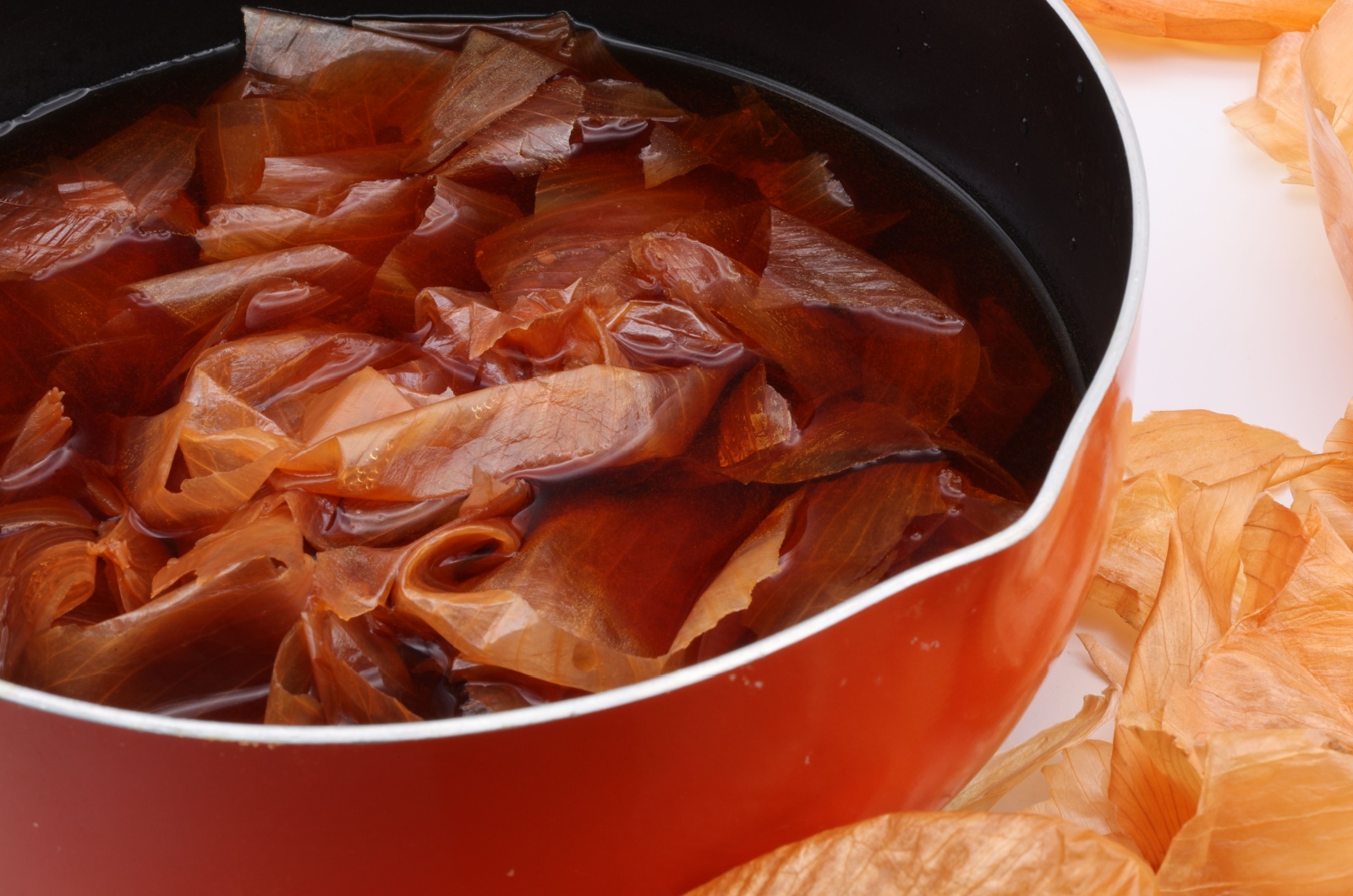
Onion skins can be dried and then grounded into powder. This powder can be used to add a subtle, earthy taste to sauces, stews, and soups. So, instead of tossing them away, try to make onion skin powder for a distinctive, rustic flavor.
4. To Boost Immunity
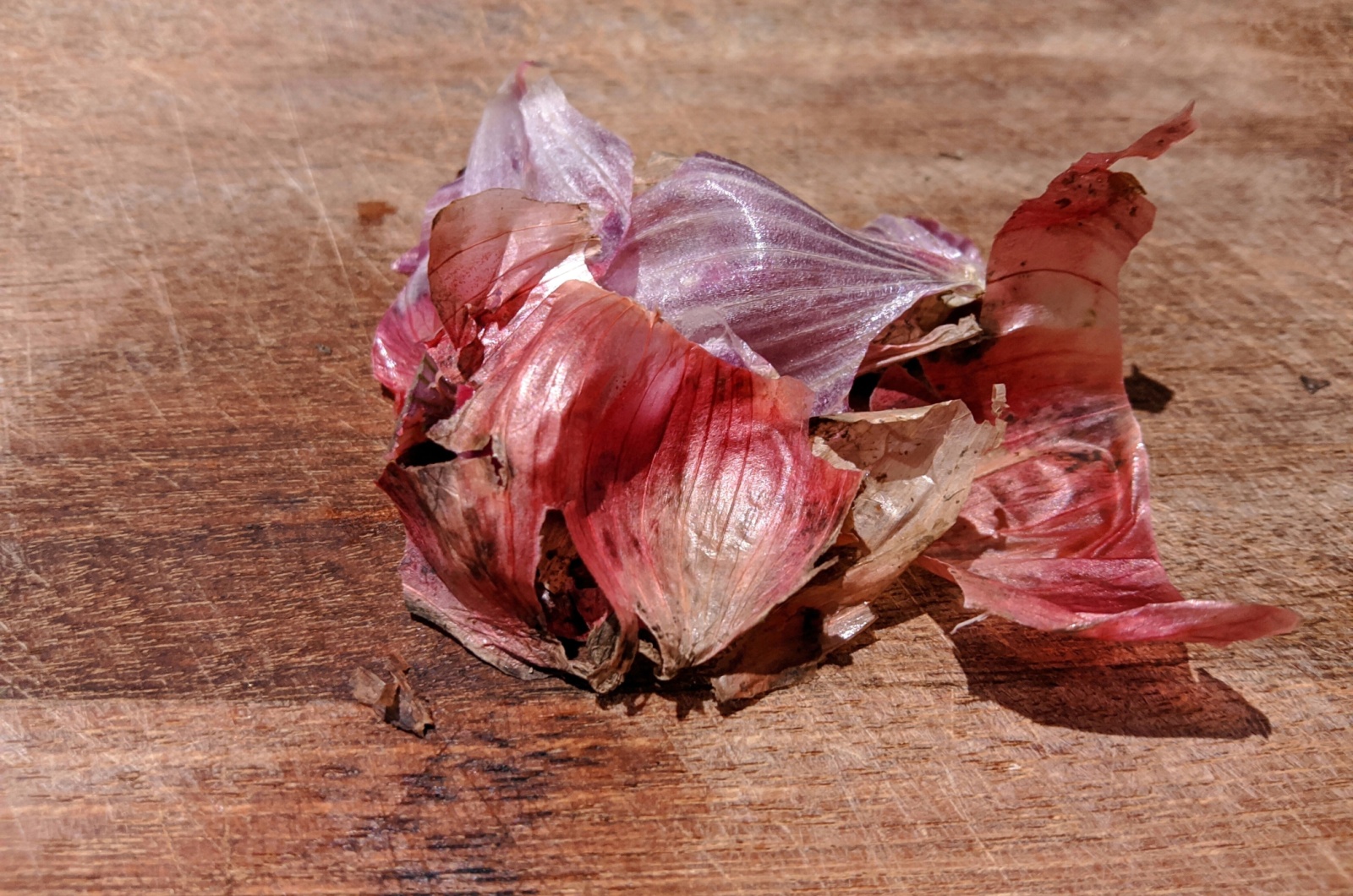
Antioxidants contained within onion skin can be used to improve our immune systems, which makes us more resilient to colds and flus. Just use onion skins to make tea – drink it every now and then to become healthier and stronger.
Did you know: A Walk In The Woods May Improve Your Mental Health
5. For Eco-friendly Cleaning
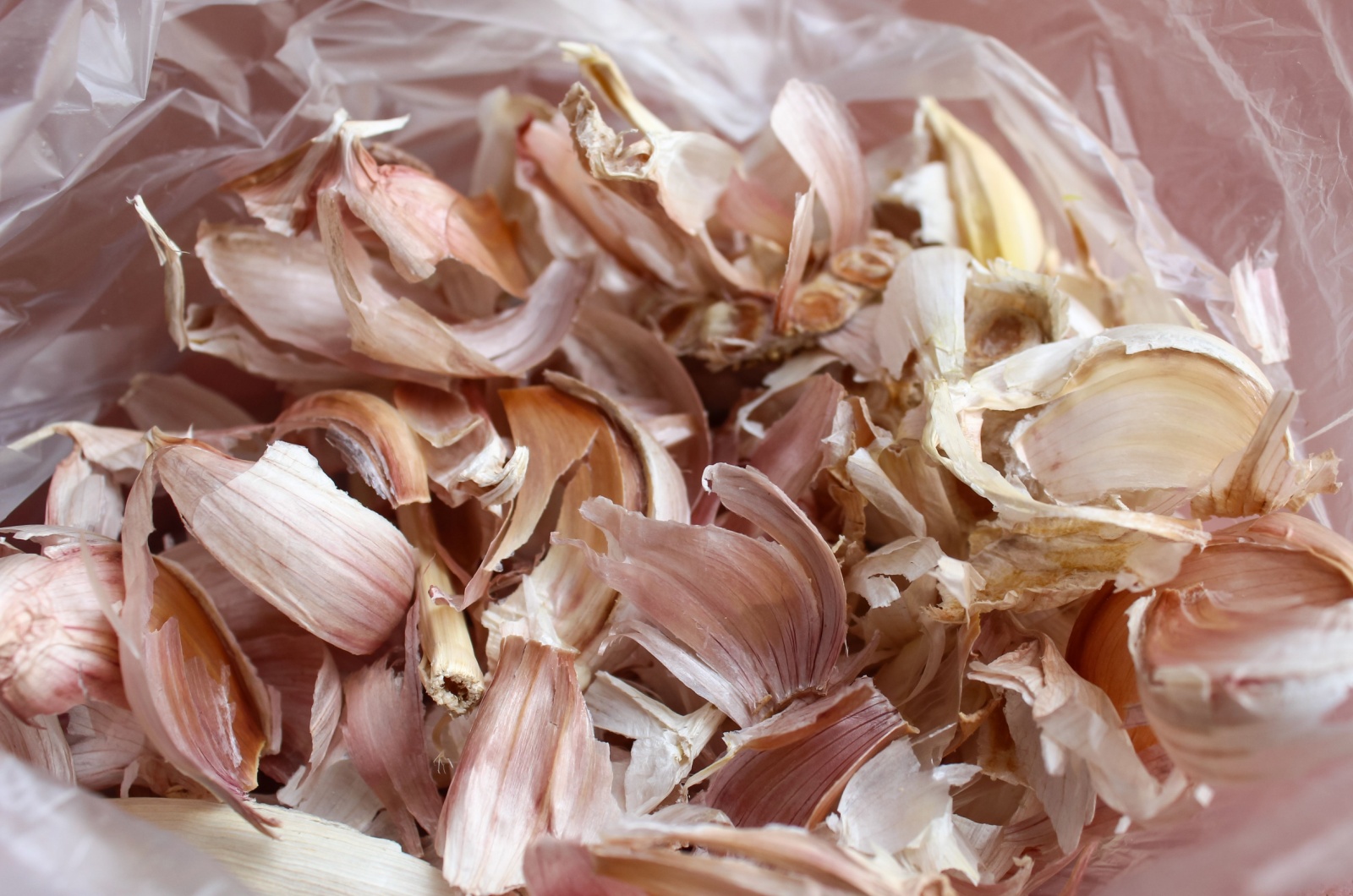
Opt for onion skin to make eco-friendly cleaning supplies instead of chemical ones. Natural compounds found in onion skins can be used to tackle stains and grime, which is why they are often added to homemade cleaning solutions.
This might be useful: How To Grow Candy Onions
References:
1. Ansari et al. Quercetin extraction from small onion skin (Allium cepa L. var. aggregatum Don.) and its antioxidant activity. National Library of Medicine.


